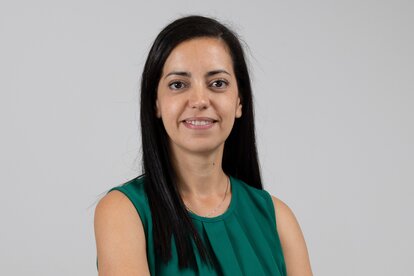What do you associate with the city of Beirut, the capital of Lebanon? The Paris of the East? The jewel on the Mediterranean Sea? Or civil war? Sectarian conflicts?
We visited Beirut a couple of times last year and saw both, the reminiscence of a brutal civil war, and parts of the city that are super-cool. The most intense impression for us was that of a vibrant city with a creative and entrepreneurial spirit.
A drama unfolding
The news coming out of Beirut is deeply worrying. The currency lost 80% of its value since October last year. A country that had relied largely on imports for food, fuel, pharmaceuticals, etc. cannot afford to pay for foreign goods anymore. Tourists, many from Gulf countries stay away. Hotels, restaurants, shops are closing. The World Bank estimates that 40% of the population lives at or below the poverty line.
Yassmine lives and works in Beirut. She worked for Helvetas in the past. She is lucky. Now working in a recruitment center for Gulf state companies, she draws her salary in cash Dollar. The Lebanese Pound salary of her husband, working in a bank, would hardly be enough to cover food expenditures for half a month. She talked about the son of her cousin in Tripoli, a city up the Northern coastline. He had developed pneumonia. The local doctor only had paracetamol. Hospitals refused admission: beds are full. When it got worse, they took the boy straight through into an emergency ward. They had a ventilator, but no oxygen. He died the same day. The hospital will close in two weeks. The Government has not paid them millions of dollars for the treatment of civil servants and soldiers.
We asked Yassmine how people without income are managing their livelihoods; the taxi drivers, hotel workers, waiters, but also managers and technicians. They sell what they have. Newly impoverished people are taking to Facebook to trade household items and children´s toys for milk. There is a spirit of despair and survival.
From boom to doom
For a long time, Lebanon was an oasis in a region that is full of conflicts. While Syria sank in its civil war, Lebanon experienced a construction boom. Tourists mainly from Gulf countries came flocking in. Lebanon had freedom of opinion and culture. The Lebanese Pound was pegged to the US Dollar giving the illusion of a stable currency. Banks paid high-interest rates, while the government accumulated the world´s highest public debt.
The collapse is the result of decades of economic mismanagement, corruption, and overspending. Hopes for rescue are fading as the country's ruling elites resist the kind of policy changes and outside scrutiny that would unlock international aid. Talks with the International Monetary Fund to secure a $10 billion loan have stalled.
Of the 6.8 million people living in the country, about 20% are refugees, most of them Syrians, giving Lebanon the highest per-capita refugee population in the world, according to U.N. and World Bank figures. They will be the hardest hit as prices soar beyond their meager means and as the work in the informal sector, they rely upon dries up.
….and then, COVID-19
Three months of the corona lockdown were the last nail into the economy’s coffin. With the closure of public life, many more people lost their jobs. Unemployment soared to 40%.
The country is in ‘double whammy’ – a crisis within a crisis.
Huge protests in autumn of last year demanded a cabinet of technocrats. Corona has stopped the protests. The army and police cleared public places. After the lockdown was lifted, it seems that people had capitulated. Only sporadic protests occurred in recent weeks. People have become observers of their demise.
Towards the end of our conversation, Yassmine told us, with a degree of sarcasm, that international NGOs in Beirut are having a field day – a boom in their activities! Food handouts organized by NGOs have become essential for many people at this point. Soup kitchens are operating. No doubt providing food aid is important for many people who have lost all means to feed themselves and their families.
We all realize that this is not enough. People need support to make their way back to a self-determined life. Helvetas has been in dialogue with partners of the Alliance2015 as well as with national organizations to explore and develop opportunities to respond to the current situation in Lebanon.
What lines are we planning to take?
How can development organizations like Helvetas respond?
A transformed urban food system
The crisis of the past months has exposed food systems in Lebanon as fragile and unable to secure the supply of healthy and affordable food, particularly for people in urban areas whose economic base has eroded dramatically. We have prepared a proposal with an Alliance2015 partner that aims at transforming urban food systems.
With a multi-stakeholder forum in the driving seat, we propose to address the relevant policy framework and support municipal governments to practice active governance of the food system. We plan to support entrepreneurs with innovative ideas that contribute to increased efficiency and sustainability in production and food supply chains. The third line of intervention will support communities to implement their initiatives related to building a more resilient food system, such as food production (urban and peri-urban agriculture) and reducing food waste and the use of excess food
Building on the country´s entrepreneurial spirit – support for social entrepreneurs
Despite the extent of the crisis unfolding, there is an unmistakable entrepreneurial spirit that one can sense strongly in Lebanon. We believe that this spirit can be used in addressing some of the issues of the current crisis.
Social entrepreneurship has a history in Lebanon, though it needs more structure and frame for sustainable results. In close collaboration with a Lebanese partner, we want to understand how the crisis has impacted established social enterprises and by what measures they can be best supported to get through the crisis while developing a more resilient business model.
The crisis has opened up new business opportunities that social enterprises can take up. An example is an organic compost as an alternative to imported chemical fertilizer. We propose to provide support to accelerate such business opportunities through Lebanese incubators/accelerators and create income, employment, and services for people who have been affected by the crisis. We also propose to work with business service providers of social enterprises to expand their capacities in providing support services and networking them with peers in the region and Europe. We see the potential for promoting and exporting successful social enterprise models in the region through Franchise and similar models.
IT Literacy to contribute to a transformation of civil society organizations
Lebanon has the most diverse and active civil society in the Middle Eastern region. However, it has failed to drive political change. We are working with a Lebanese organization in the preparation of an initiative to increase the IT literacy of civil society organizations. We propose to address the application of IT tools in internal processes, in their implementation of programs and for networking and exchange.
In the absence of a social welfare state, social initiatives have taken a service role rather than advocate for political change. With the huge growth of the humanitarian market, Lebanese NGOs are even more ‘logframe-guided’ and dependent on foreign aid. We realize that the planned intervention will not bring a radicle shift, but we want to support existing NGO networks in using IT tools for efficient online collaboration, for advocacy, and help them to develop into a stronger autonomous force.
The way forward: navigating complexity
Setting foot in Lebanon at present requires navigation in uncharted territory. In an earlier blog, my Helvetas colleagues have written about the skills and features that development programs need to operate in such an environment full of uncertainties. Addressing complexity requires a diversity of expertise and skills that one organization will not harbor.
We are collaborating already with national and international partners of Alliance2015 to take forward the intervention proposals that we have introduced in this blog. Building on local expertise and working with local people who aspire for the betterment of their society is crucial. Teams must be prepared to experiment, deal with failures. They must engage in ongoing learning and reflection processes to recognize early unexpected changes which may bring threats but also opportunities and make necessary course direction. Staying in your comfort zone is not an option.
Yassmine, who is an investigative journalist by training, has helped us to understand a little better the intricacies of Lebanon´s society. She ended our last telephone conversation with a proverb in Arabic: A pebble can support a barrel. The English equivalent would probably be: Even a small effort can go a long way. An encouraging word in this situation of total doom.
Related readings
- Can Development Cooperation Be Resilient to Major Crises? Only By Exploring the Uncharted
- The COVID-19 Response Across the Humanitarian—Development Nexus
- ‘Business as Usual’ in Post-COVID Worsens Vulnerability
- Four Knotty Issues for Tying & Strengthening the Humanitarian–Development Nexus



